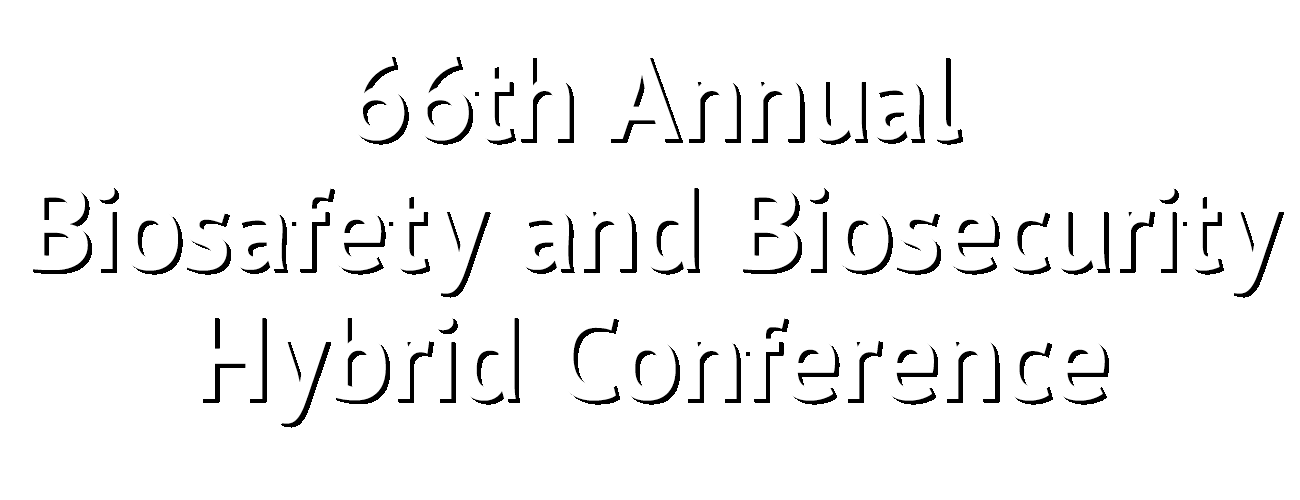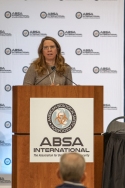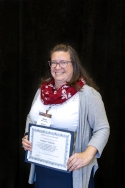66th Annual Biosafety and Biosecurity Hybrid Conference
Scientific Program
WEDNESDAY October 18
All times listed will be CENTRAL Standard Time
7:00 – 5:00 pm Registration
7:00 – 8:00 am Continental Breakfast in Foyer
8:00 – 8:05 am Welcome
Master of Ceremonies: Sherry Bohn, PhD, CBSP(ABSA), SM(NRCM), University of Maryland—Baltimore, Baltimore, MD
Session XV Field Biosafety
Moderators: Kaci Van Dalen, MS, NIH/NIAID, Fort Collins, CO
George Wudiri, DVM, PhD, Sandia National Laboratories, Albuquerque, NM
8:05 – 8:20 am Introducing Field Biosafety Levels for Safe Research Beyond Laboratory Walls
Marc Valitutto, DVM, EcoHealth Alliance, New York, NY
8:20 – 8:35 am Chronic Wasting Disease in Pennsylvania White Tail Deer
Sarah Capasso, PhD, RBP(ABSA), University of Pennsylvania, Philadelphia, PA
8:35 – 8:50 am First Year Lessons as a New Field Research Safety Lead
Jamie Bishop, PhD, University of California—Santa Barbara, Santa Barbara, CA
8:50 – 9:05 am Considerations of Field Biosafety Principles and Working with Animals
Gregory Powell, PhD, Arizona State University, Tempe, AZ
9:05 – 9:35 am Q&A Session
Session XVI Richard Knudsen Award
Introduction: Larry Mendoza, MS, RBP(ABSA), Virginia Commonwealth University, Richmond, VA
Moderator: Kalpana Rengarajan, PhD, RBP(ABSA), Emory University, Atlanta, GA
9:35 – 9:55 am Autoclaving as a Routine Method for the Decontamination of Animal Carcasses in a Biosafety Level 3 Facility
Hermann Schildorfer, PhD, Austrian Agency for Health and Food Safety, Mödling, Lower Austria, Austria
9:55 – 10:05 am Q&A Session
10:05 – 10:35 am Coffee Break
Session XVII The State of the Biosafety Profession
Moderators: Colleen Kovacsics, PhD, RBP(ABSA), Sparks Therapeutics, Elkins Park, PA
Sunny Hoffman, MPH, RBP(ABSA), Clinical Biosafety Services, Columbia, MO
10:35 – 10:50 am Do They Know Who We Are? Do We?
Andrew Maksymowych, PhD, RBP(ABSA), University of Pennsylvania, Philadelphia, PA
10:50 – 11:05 am Developing a Biorisk Management Competency Framework for ABSA International
LouAnn Burnett, MS, CBSP(ABSA), ABSA International, Mundelein, IL
11:05 – 11:20 am Identifying Competencies for a Biosafety Career Ladder
Paul Meechan, PhD, RBP(ABSA), CBSP(ABSA), Biosafety Consultant, Catonsville, MD
11:20 – 11:35 am Development of a Future Sustainable Workforce: The Biorisk Management Certificate at IUP
Tracey Lynn Cekeda, DSc, CSP, Indiana University of PA, Indiana, PA
11:35 – 12:05 pm Q&A Session
12:05 – 1:50 pm Honor Awards and Special Recognition Luncheon
Presenter: Rebecca Moritz, MS, CBSP(ABSA), SM(NRCM), Colorado State University, Fort Collins, CO
Arnold G. Wedum Distinguished Achievement Award
Everett J. Hanel, Jr. Presidential Award
John H. Richardson Special Recognition Award
Diane Fleming Leadership Award
Scientific and Informational Poster Awards
Hashimoto Award for Service and Honor
Richard Rebar Recognition of Certified Biological Safety Professionals and Registered Biosafety Professionals
Session XVIII Animal Biosafety
Moderators: Max Schroeder, PhD, RBP(ABSA), Centers for Disease Control and Prevention, Tucker, GA
Darlene Ward, RBP(ABSA), Advarra, Boca Raton, FL
1:50 – 2:05 pm Microbiome Work in Gnotobiotic Mice: I See Your “Healthy Human Flora” and Raise You a BSL-2 Agent
Susan Vleck, PhD, RBP(ABSA), CBSP(ABSA), Stanford University, Stanford, CA
2:05 – 2:20 pm Building a Successful Animal Research Safety Program at a University
Marina Zelivyanskaya, DVM, RBP(ABSA), Northwestern University, Chicago, IL
2:20 – 2:35 pm Issues in Non-Human Primate BSL-3 Research Facilities
Edwin Scott Kreitlein, MArch, BHDP Architects, Cincinnati, OH
2:35 – 2:50 pm Q&A Session
2:50 – 3:15 pm Coffee Break
Session XIX Unique Topics in Biosafety
Moderators: Matt Anderson, PhD, RBP(ABSA), CBSP(ABSA), University of Nebraska–Lincoln, Lincoln, NE
Kelly Flint, RBP(ABSA), CBSP(ABSA), SM(NRCM), National Institutes of Health, Fort Detrick, MD
3:15 – 3:30 pm Enhancing Biosafety for the Use of Biohazards in High-Speed Cell Sorters
Benjamin Fontes, MPH, CBSP(ABSA), Yale University, New Haven, CT
3:30 – 3:45 pm Reflections on Biotech Incubators in Academic Settings
Olga Draper, University of California—Berkeley, Berkeley, CA
3:45 – 4:00 pm High Containment Laboratory Support at UW-Madison
Andrea Ladd, PhD, RBP(ABSA), University of Wisconsin—Madison, Madison, WI
4:00 – 4:15 pm BSC MythBusters: Do Large Lab Machines Require an Enclosure to Maintain Protection
Kara Held, PhD, Baker, Sanford, ME
4:15 – 4:45 pm Q&A Session
4:45 pm Close of Conference
Sherry Bohn, PhD, CBSP(ABSA), SM(NRCM), University of Maryland—Baltimore, Baltimore, MD











